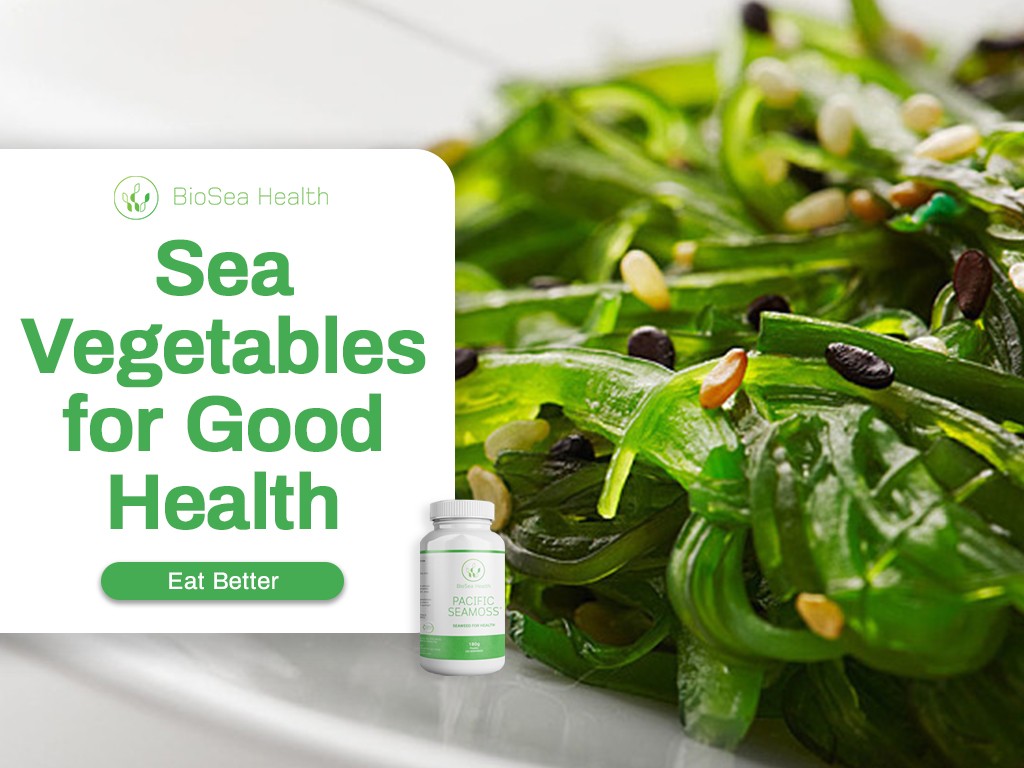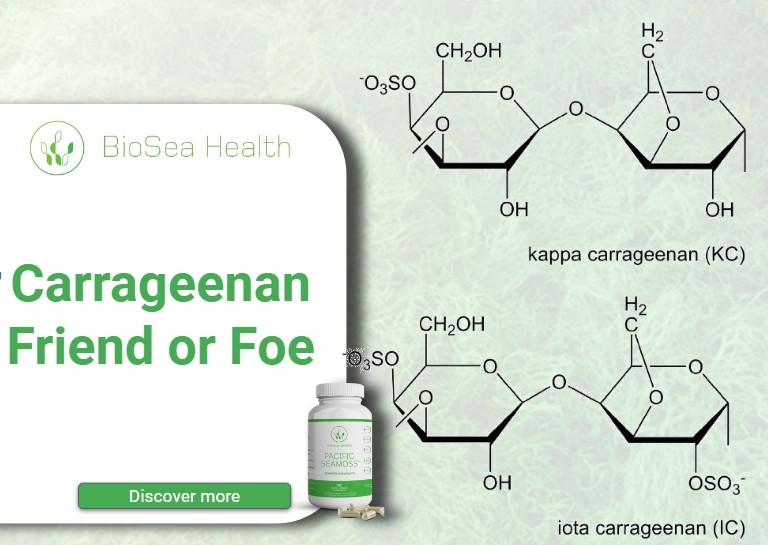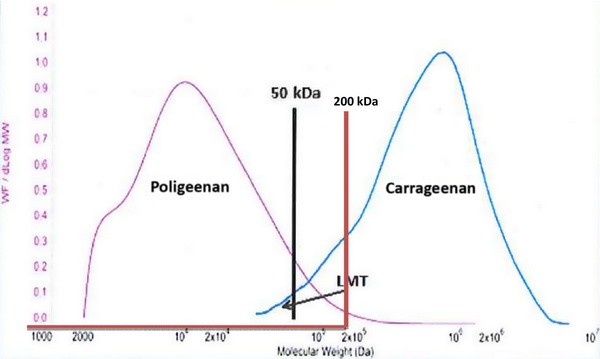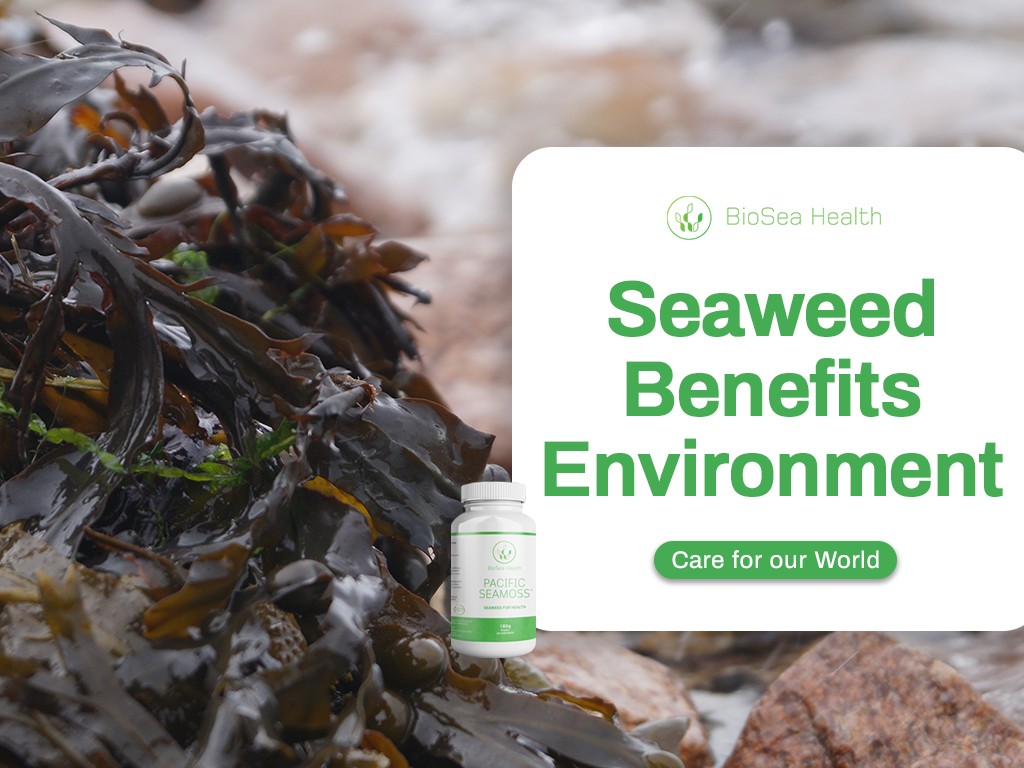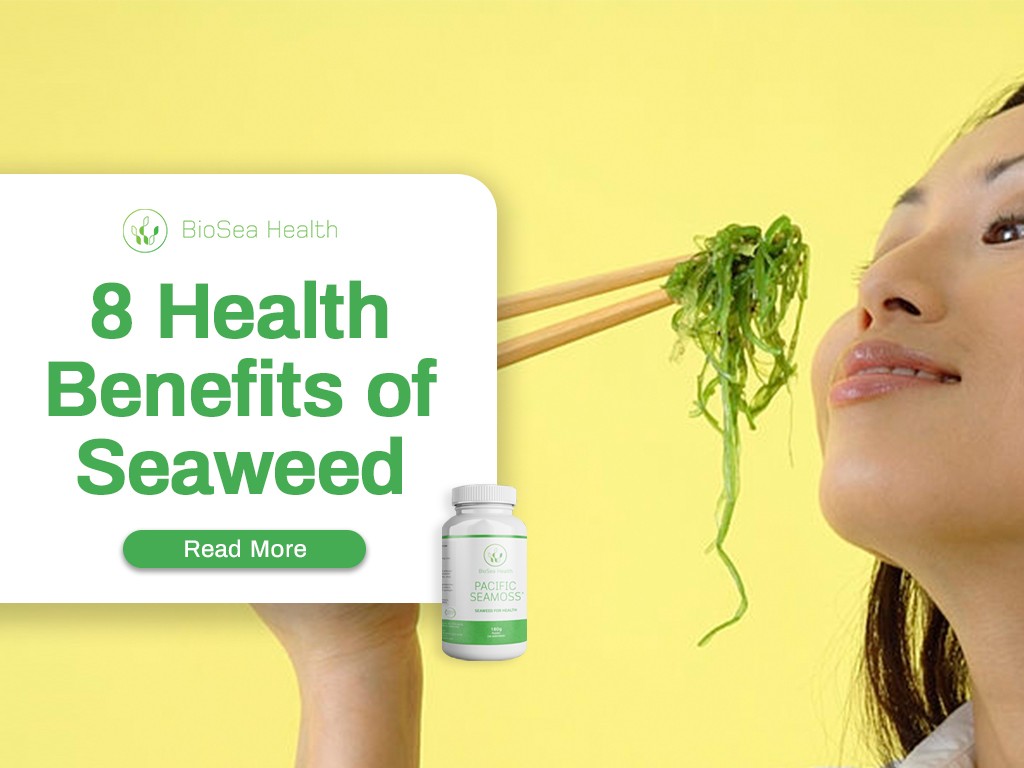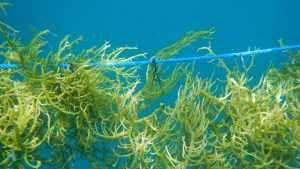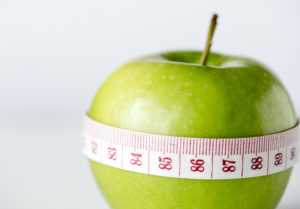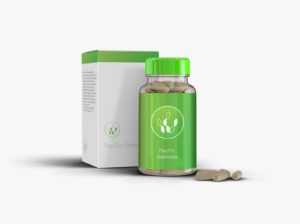Health Benefits of Seaweed
Seaweed, or “sea vegetables”, are a type of sea algae that can be found growing along shorelines around the world. Generally, seaweed can be classified by color – red, green and brown. Biosea Health grows and harvests Pacific Sea Moss© or Kappaphycus alvarezii in pristine Pacific waters off the SouthEast Coast of the Philippines. Enjoy the health benefits of seaweed.
People are familiar with the dried, processed varieties commonly used in the making of salads, soups and sushi. However, they may not know this aquatic plant has a number of edible species, each with their own nutritional and health benefits.
Eastern cultures have acknowledged seaweed as a sustainable and nutrient rich food source for thousands of years. Backed by modern science, there is a growing movement to include seaweed in the Western diet in order to take advantage of the many health benefits.
1. Potential Cancer-Fighting Properties
Seaweed is a natural source of fucoxanthin. A carotenoid, a class of biological pigment that includes beta-carotene. Fucoxanthin is being actively researched for its many health properties. Brown seaweeds have more than red seaweeds but all contain some.
Perhaps the most exciting discovery about this compound is its anti-cancerous properties. Cancer is characterized by the growth of abnormal cells and there are more than 100 cancerous diseases. Fucoxanthin can disrupt the development of cancerous cells helping to slow the advance of the disease.
Many of the studies on fucoxanthin’s effects on cancer, focus on animal subjects. Scientists are excited by the prospect of developing cancer fighting medications from seaweeds for humans.
2. Improved Heart Health and Blood Pressure Maintenance
According to the World Health Organization more than 1.13 billion people suffer from high blood pressure (hypertension) and less than 1 in 5 have the condition under control. Hypertension forces the cardiovascular system to work harder, creating pressure within the heart and arteries that can reach dangerous levels.
Symptoms of high blood pressure can be easily ignored unless diagnosed by a medical professional. Known as “the silent killer”, it can cause dizziness, headaches, nose bleeds, vision changes, fatigue, nausea, and vomiting depending on the severity of the condition. Left uncontrolled, hypertension can lead to strokes, seizures, heart attacks, irregular heart rhythm, kidney damage, and blocked arteries, all of which can result in death.
3. Full of Essential Minerals
Seaweed contains a number of essential minerals including potassium, copper, calcium, zinc, magnesium, and sodium. These minerals, as part of a healthy diet help to lower the risk of both high blood pressure and cardiovascular disease. The ingestion of seaweed has been shown to improve the physical structure of the heart in rats.
Potassium especially has been recommended as an important element in helping to improve cardiovascular health. There are many ways to ingest the necessary amounts of potassium, however, 18 g of dried seaweed contains approximately the same amount of potassium as 700 g of spinach. More detail is provided in our Trace Elements in Seaweed analysis for Pacific Seamoss
4. Full of Vitamins
The actual level of vitamins has been poorly studied but check out our vitamin Seaweed is Full of Vitaminsanalysis to see that depending on how the seaweed is harvested, and species may be 30% of your daily requirements of Vitamin B’s or Vitamin D’s
5. Improves Liver Function and Structure
Primarily the liver filters blood coming from the digestive tract, metabolizes drugs and detoxifies chemicals. This important organ also produces proteins that aid in blood clotting.
Compromised liver function can result in a buildup of blood impurities. Chemicals, minerals, proteins, and nutrients that would normally be distributed through the body or filtered out as waste, instead of failing to reach their proper destinations. Sadly, many liver disorders and diseases do not present with outward symptoms until they have progressed further.
The fiber and nutrients contained in seaweed appear to help purify the digestive tract and improve cardiovascular health, which benefits the liver. Fucoxanthin has also been shown to improve the structure of the liver, as well as the heart.
6. A Natural Way to Promote Thyroid Health
Seaweed contains a rich source of iodine which is necessary for thyroid health. The thyroid produces hormones which help to regulate many of the body’s metabolic functions, such as brain development, temperature, heart rate, cholesterol, menstrual cycles, and breathing.
A common source of iodine in the Western diet is iodized table salt. For those watching their sodium intake, even small amounts of added salt can be detrimental. Instead, the ingestion of seaweed can provide most, if not all, of the recommended daily intake. However, too much seaweed can lead to an over-saturation of iodine, so moderation is encouraged.
7. Supports Digestive Health and Regularity
In 2008 the recommended daily intake of fiber was 25g for females and 38g for males. As little as 8g of seaweed a day could provide 12.5% of this need. Increased fiber helps the body to flush out toxins and waste, including excess fats.
Prebiotics are food for the microflora inside the human digestive tract. These foods are often high in fiber, making seaweed an optimal source. Probiotics are foods that contain live microorganisms that maintain or improve microflora. Though research is still exploring the benefits of prebiotics, healthy adults can safely add this natural digestive aid to their diet.
Depending on amount consumed, seaweed is very high in soluble and insoluble fibre. Details are on the label
8. Assists in Controlling Hunger Which Can Aid in Weight Loss
Obesity is a major health concern around the world, especially in industrialized nations. Maintaining a balanced BMI amongst all of life’s other responsibilities can be a challenge for even the most dedicated.
Besides being beneficial to your digestive tract, fiber is a great way to stave off hunger. Fiber lacks calories while also filling the stomach and providing nutrients. Seaweed, already a low-calorie food, is also high in soluble fiber (36.4%) and other nutrients. In addition, the fucoxanthin in seaweed has been shown to aid in weight loss in rats who had been fed a high-calorie diet compared.
Additional Health Benefits of Seaweed
These additional health benefits have been shown in both animal and human studies.
9. Aids in Controlling Blood Sugar and may reduce risk of Type 2 Diabetes
Seaweed’s high fiber composition, nutritional content, and prebiotic properties may promote digestive, liver, thyroid and cardiovascular health. Working in concert, these systems can foster healthy insulin production and blood sugar levels. Enjoy the health benefits of seaweed.
Lifestyle factors, such as diet, exercise and genetic predisposition, can affect any of these systems singularly or collectively. Drug reactions, injury, and physical changes to the body such as pregnancy or cancer can also affect how the body processes glucose and produces insulin.
Type 2 diabetes occurs when the cells become resistant to insulin and the pancreas is unable to overcome this resistance. Insulin then needs to be introduced into the body to balance glucose levels in the blood. Lifestyle and diet changes can assist the body in stabilizing glucose to insulin levels.
Research has shown that the fucoxanthin lowered the blood glucose, plasma insulin, and water intake in diabetic mice. One human-trial study reported a decrease in body weight that may have been related to the presence of fucoxanthin. The potential benefits for diabetics is high and could prove to help those not affected by the disease to lessen their susceptibility.
10 Boosts the Immune System and Anti-Aging
The not so humble “sea vegetables” is a nutrient-dense part of the average diet in Japan, Korea and China – nations which have been the focus of many recent health studies. It has long been noted by science and the healthcare community that these cultures have extended longevity and overall health when compared to the West.
Seaweed is full of antioxidants which may protect cells from internal and external free radicals. The cancer fighting properties of fucoxanthin may also assist the body in fighting signs of aging created by irregular cell development. These products may have also, anti-inflammatory properties. Skin care products and healthcare techniques which use seaweeds can be found throughout Asia and are steadily making their way around the world.
11. Improves brain function
Check out our post on how seaweed is being studied for improved brain function and reduction in dementia.
12. Reduces Hangovers
There is good evidence seaweed assists in reducing hangovers
We make no medical claims. But we all understand seaweed is healthy. What you may not know is that peer reviewed scientific papers have shown in countless studies on humans, animals and in test tubes that seaweed is healthy. Biosea Health provides seaweed as a simple way to consume food. Simply good healthy food.
References
For more reading, check out these links.
- Wanyonyi S, Du Preez R, Brown L, Paul NA, Panchal SK. Kappaphycus alvarezii as a Food Supplement Prevents Diet-Induced Metabolic Syndrome in Rats. Nutrients. 2017; 9(11):1261. https://doi.org/10.3390/nu9111261
- Cancer – an Overview https://www.britannica.com/science/cancer-disease
- Global Hypertension https://www.who.int/news-room/fact-sheets/detail/hypertension
- WEBMD – Liver disorders https://www.webmd.com/digestive-disorders/picture-of-the-liver#1
- Probiotics by Mayo Clinic https://www.mayoclinic.org/healthy-lifestyle/consumer-health/expert-answers/probiotics/faq-20058065
- How does the thyroid gland work? https://www.ncbi.nlm.nih.gov/books/NBK279388/
- 2017 Japanese Adults reduction in hyperlipidemina Journal of Nutritional Science , https://doi.org/10.1017/jns.2017.1
- Cherry P, Yadav S, Strain CR, Allsopp PJ, McSorley EM, Ross RP, Stanton C. Prebiotics from Seaweeds: An Ocean of Opportunity? Marine Drugs. 2019; 17(6):327. https://doi.org/10.3390/md17060327
- Diabetes – explained by the Mayo Clinic https://www.mayoclinic.org/diseases-conditions/diabetes/symptoms-causes/syc-20371444
- Peng J, Yuan J-P, Wu C-F, Wang J-H. Fucoxanthin, a Marine Carotenoid Present in Brown Seaweeds and Diatoms: Metabolism and Bioactivities Relevant to Human Health. Marine Drugs. 2011; 9(10):1806-1828. https://doi.org/10.3390/md9101806



